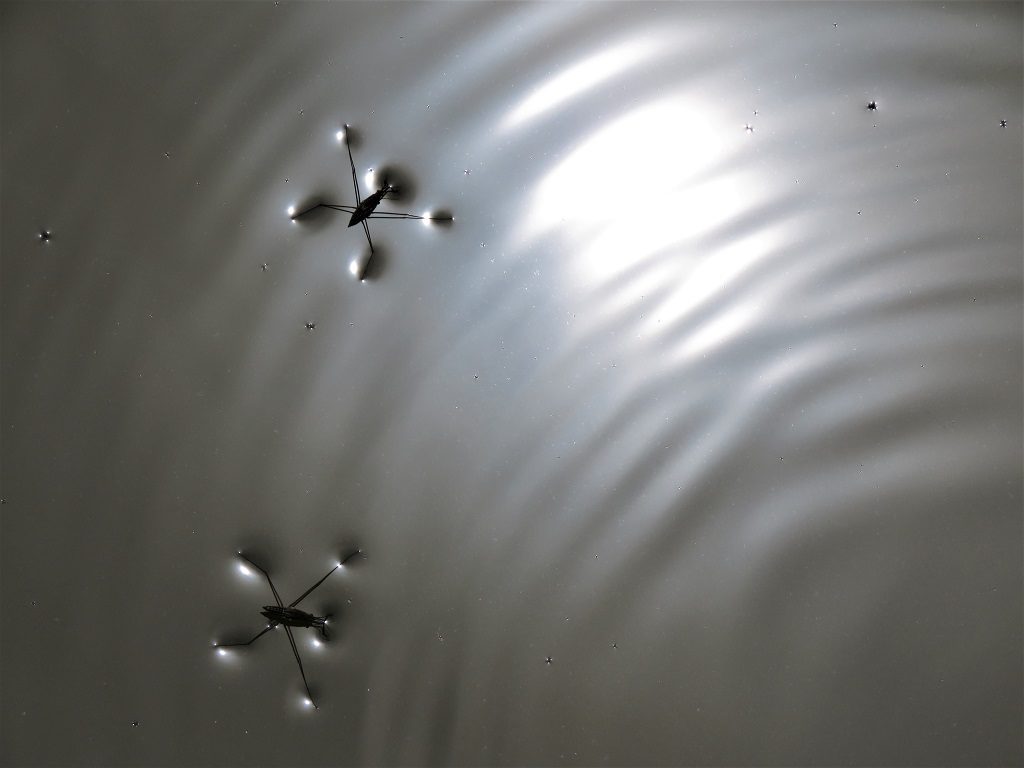The Writer, The Past, and The Progressive
The writer’s primary goal is not to appeal to readers, nor even to appeal to good readers, but rather to be worthy of good readers. He cannot control whether any such readers will exist, or whether, if they do exist, they will ever discover or appreciate his writing. He must concern himself only with what he can control — though even that only partially and unsatisfactorily — namely what he writes and how well he writes it.
If it seems too paradoxical or precious to say that the writer’s concern is not to find readers, then perhaps we may say the same thing more prosaically: The true writer is seeking to join a conversation that stretches back as far as civilization, and hence the potential readers he has in mind, to the extent he is thinking as a writer per se, are all or mostly men and women of the distant past, namely the individuals to whose ideas he is primarily responding, against whose insights he is measuring his own, and to whose judgment he anxiously and humbly submits his work.
From this, we may infer that no true writer can simultaneously be a true progressive. For it is essential to the writer’s mind to be addressing himself much less to the future, which does not exist, than to the past, which by definition exists far more substantially and permanently than anything in the ephemeral, ever-shifting, and scale-distorting present. The progressive — and I employ that word here in its broadest possible meaning, to encompass not only today’s mindless Marxist mobs but also men as serious as Locke and Hegel — is constitutionally, or even definitionally, predetermined to view the past with a condescending self-certainty born of an innate theoretical presupposition of having transcended all that came before, either in the Enlightenment sense of having debunked it all (as in Locke), or in the historical dialectic sense of having reduced it all to so many immature manifestations of himself (as in Hegel). But this presupposition fosters, or perhaps stems from, a psychological attitude toward past civilization and past thought that contradicts, or rather nullifies, the natural writer’s orientation toward viewing the past as the source of one’s ultimate judges and interlocutors.
In short, a man who speaks primarily to the future is speaking only to himself, and hence protecting himself from the trial by fire of the most dangerous comparison, i.e., of intruding upon the conversation of great men, and thus daring them to laugh him out of the room as an imposter, or simply to ignore him as yet another puny flatterer or mudslinger. But that trial by fire motivation is, in the final analysis, indispensable to being a writer in the most essential sense of that name. For this is how the writer, a man diverted from the more natural path of direct verbal communication by a quirk or deformity of constitution or temperament, satisfies the “political animal” aspect of his humanity.
None of this is, in itself, any sort of argument against progressivism as such, and certainly is not an attempt to negate the irreducible value of Locke or Hegel, as they presumed to do to their antecedents. It is merely a matter of clarifying our terms, and hence drawing proper lines of demarcation. Progressivism as modernity’s increasingly prevalent mode of thought — and, historically speaking, an increasingly narrow-minded and unphilosophical mode — was of course cultivated and disseminated by men who wrote, in the trivial or literal sense of committing ideas to language, and then language to script. But none of these men were writers in the strict sense defined above, namely men whose primary aim was to join and contribute to the great conversation (which by definition predates them), more or less unconcerned with the judgment of their contemporaries, and even less so with that of any imaginary future beings. A progressive, by contrast, is primarily concerned with the reception of his contemporaries, and secondarily with that of the future which, according to his own hypothesis, is either going to render him obsolete or — as he hopes and dreams — entrench him as its final word and perpetual progenitor.
One more way to say this: The progressive aspires to be in one way or another the end of history, which of necessity would render all his predecessors significant only as the material cause of himself, or fodder for his ideas. The writer, by contrast, aspires to earn a place for himself along the ever-revolving circle of essential conversation, which of necessity renders all great thinkers of the past vital and irreducible as mentors, superiors, worthy foils, or potential friends in the endless quest for wisdom which he seeks to join.
I might add that much of my account of the nature of the true writer, including the contrast with the progressive, applies as well to the nature of the true reader, a consideration and addendum suggested by the fact that Socrates, the very fountainhead of much of civilization’s great conversation, was not a writer, although we know he was certainly a most serious and inspired reader of, for example, Homer and Anaxagoras. His disagreements with those two, among others, in no way indicated any easy sense of having simply superseded them, but rather derived from his lack of condescending presumption toward them, which is to say his understanding that their ideas, though from the past, were not thereby rendered obsolete or antiquated. They were, to Socrates, living thinkers of the greatest power and influence, with whom he found himself at odds about the nature of the gods or of human action, and with whom he entered into a rational dispute, as one does with men whose ideas are still very much alive among the legitimate alternative positions. In this sense, then, we may say, to return to our paradoxical way of speaking, that Socrates was more of a genuine writer than Hegel, although the former is famous for never having committed his thoughts to paper, whereas the latter’s ideas exist primarily in his voluminous books, and in their most developed form could not possibly be understood independently of the words printed on his thousands of pages.



